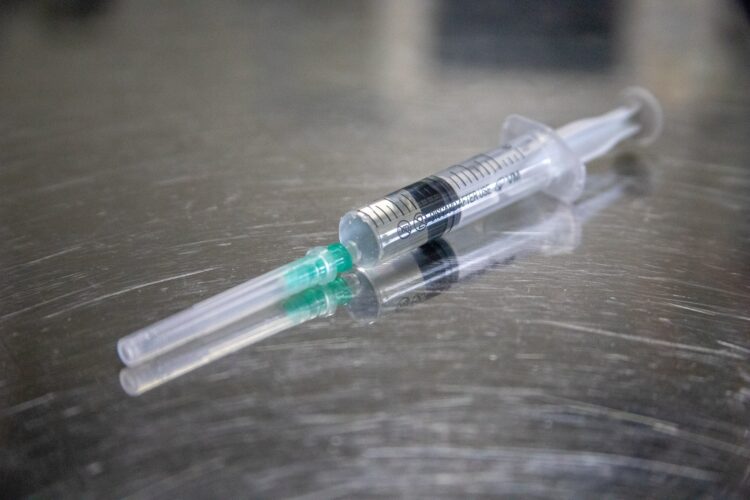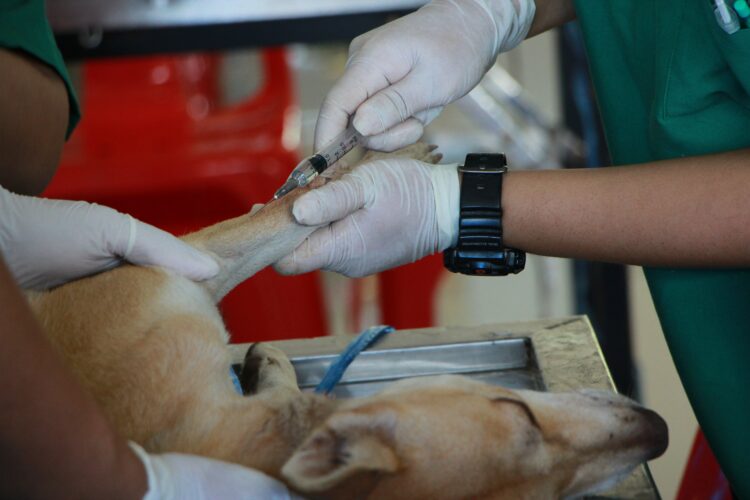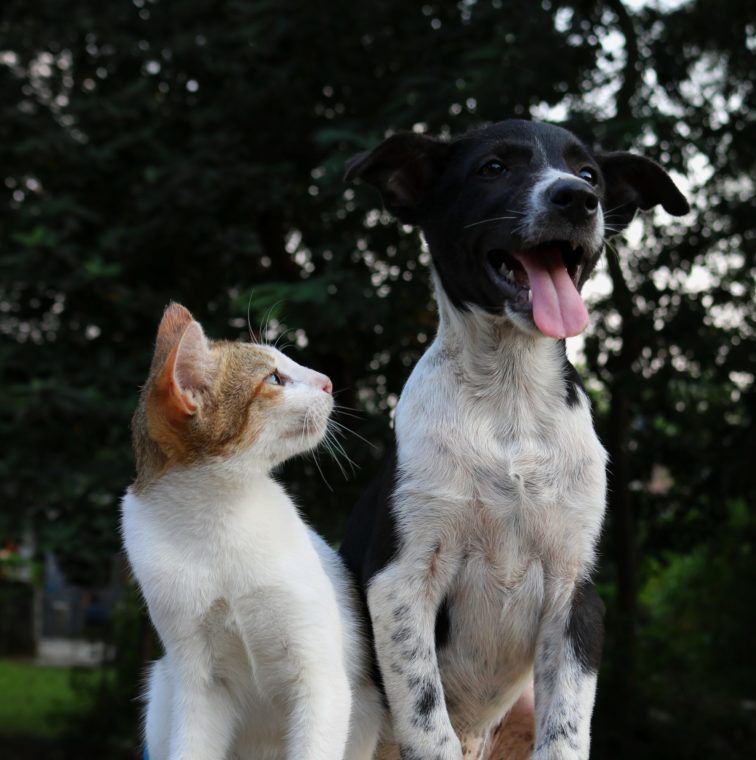Guest post courtesy of Jan Rasmusen. The views and opinions expressed in this article are those of the guest author and do not necessarily represent the views of Val Heart & Heart Communication Enterprises Inc.
What you need to know about vaccines for dogs and cats
Vaccination is an important medical decision to be made by you in consultation with your veterinarian.
Educate yourself then ask the upcoming questions before you vaccinate.
Click the links for more information.
To learn why over-vaccination is a problem, read Vaccine Reactions: Underreported and Unrecognized, Not Unimportant.
Do not vaccinate pregnant animals.
Top veterinary organizations (AVMA, WSAVA, AAFP and AHVMA) and many top veterinary schools divide vaccines into “core” (with which all pets should be vaccinated) and “noncore” (which should be given only when a specific risk exists, if then).
Recommended pet vaccinations
AAHA recommends puppies get 3 doses of the core vaccines for dogs (distemper, parvovirus and adenovirus) every 3-4 weeks starting at 8 weeks with the final dose at 14-16 weeks of age or later. (Some U.S. experts forgo adenovirus because canine hepatitis has not been a clinical entity in North America for more than a decade.
Others recommend giving it once after 16 weeks of age.)
Core vaccines for cats include panleukopenia, calicivirus, rhinotracheitis, and rabies. Per WSAVA: – all kittens should receive the core vaccines [For panleukopenia] a minimum of three doses is recommended: one at 8-9 weeks of age, a second 3-4 weeks later and a final dose at 14-16 weeks of age or older should be administered.
Cats that respond to MLV core vaccines maintain immunity for many years in the absence of any repeat vaccination.
According to vaccine researcher Dr. Ron Schultz, if your cat is already 16 weeks of age or older at the time of its first vaccine, only a single dose is needed to provide solid, long-lasting immunity.
No booster vaccines are needed for most adult cats, except rabies as required by law.
Questions to Ask BEFORE You Vaccinate Your Dog or Cat
1. Is my pet already immune from the disease in question?
After completing puppy or kitten core vaccination series, dogs and in some cases cats likely have long term or even lifetime immunity for the important diseases (canine distemper and parvovirus; feline panleukopenia).
Vaccine labels recommending annual or three-year re-vaccination intervals for canine core vaccines generally reflect the length of time the vaccine was tested before approval, and show minimal, not average or maximum, immunity given.
Re-vaccinating an animal with pre-existing immunity (as a result of prior vaccinations) will not make the animal “more immune” and increases the chance of an adverse reaction. It is also an unnecessary expense.
A blood titer test can be performed to test immunity for most core diseases.
Please read this before giving the distemper vaccine to an adult cat and this before vaccinating aging dogs or cats.
2. Do I know that only the rabies vaccine is required by law?
Groomers, day care providers and others may insist on certain vaccinations, but aside from rabies, what they require is their choice and may be based on inaccurate or outdated information.
Veterinarians in the same community vary in their requirements and recommendations. It pays to shop around.
The 1-year rabies vaccine is usually required at 3 or 4 months of age per local law.
Generally, a “3-year vaccine” (guaranteed by the drug maker to give 3 years of immunity) is given a year later, then every 3 years thereafter unless outdated local laws conflict with state law (Note: change the law!)
There is no benefit, but substantial risk, to vaccinating more often, or earlier, than required by law.
Failure to vaccinate on time, however, can result in being required by your vet or the law to start the series from the beginning even though vaccines don’t automatically stop giving immunity at 1 or 3 years.
A French study of dogs has shown the 3-year vaccine to last at least 5 years; blood tests show 7 or more years of immunity.
The USDA Center for Veterinary Biologics reports that the rabies vaccine is responsible for more adverse reactions than other vaccines.
Do not give this vaccine during surgery or with other drugs.
Give 3 or more weeks apart from other vaccine boosters.
Many veterinarians suggest the use of vaccines free of thimerosal (mercury) for dogs and Merial Purevax for cats.
Some locales allow exemptions for unhealthy animals.

3. If a “noncore” (optional) vaccine is recommended, do I know my pet’s individual risk of contracting the disease in question, the severity of the illness, the success rate of the vaccine and the risk of vaccinating?
Noncore vaccines for dogs or cats can be given alone or mixed with core vaccines (not recommended).
Bacterial vaccines like Leptospira, Bordetella, Borrelia and Chlamydophila are more likely to cause reactions than the MLV core vaccines and should be given on different days from other drugs.
Leptospirosis, the “L” in a canine combo vaccine, is not a problem everywhere or for all pets; the vaccine does not protect against all strains of the disease, must be given frequently, is known to cause more adverse reactions than most other vaccines and is believed to be particularly problematic for toy breeds (although large breeds are also at risk).
Eminent vaccination scientist Dr. Ron Schultz, who lives in a Leptospirosis endemic area of the U.S., does not recommend the vaccine or does not give it to his own dogs.
Bordetella (kennel cough) is given as nose drops, is generally a mild, self-limiting illness (like the human cold) which is mostly spread in close quarters with poor ventilation.
Hence, the name “kennel cough.”
The vaccine has limited effectiveness and is not recommended by Dr. Schultz and others.
Noncore bacterial cat vaccines, Chlamydophila (Chlamydia) and Bordetella, are of limited effectiveness.
4. Is my pet ill?

All vaccine manufacturers recommend vaccinating healthy animals only, but don’t define “healthy.”
Poor health could include (but is not limited to) allergies, ear infections, kennel cough, severe stress and malnutrition as well as serious chronic illnesses like liver, bladder or kidney disease, immune system dysfunction, neurological disorders and cancer.
Barring a local life-threatening epidemic, vaccination can often be postponed until health improves.
A positive titer test for a core vaccine can offer peace of mind.
Caution: vaccinating an unhealthy pet not only puts your pet at great risk but also risks vaccine failure, something especially dangerous for pets and for the public when vaccinating against rabies.
Medical exemptions to rabies vaccination are available in some areas.
5. Does my pet have a personal, family, breed or species history of vaccine reactions?
At risk pets should be vaccinated only if a particular immediate, potentially fatal risk exists and perhaps not even then.
If the vaccine must be given, a different brand than the one that caused the reaction is often recommended, although this is no guarantee of safety.
Cats are particularly at risk for injection-site sarcomas (as are some dogs) and have special vaccination needs.
Click here for more details. Also read Vaccination Protocols for Dogs Predisposed to Vaccine Reactions.
6. Is my veterinarian recommending a combination vaccine?
A Purdue study of 1.2 million dogs shows that multiple vaccines given in one visit, especially when given to a small-to-medium size dog, may greatly increase the chance of a vaccine reaction (a second study shows risks to cats.)
Multiple vaccines also make it impossible to determine which vaccine caused any subsequent reaction.
Vaccines are available with only one or two or three antigens in one hypo (called monovalent or bivalent vaccines) although you may have to shop to find a veterinarian who carries them.
Using monovalent or bivalent vaccines could lessen the chance of a reaction while increasing the chance that your pet is getting only necessary vaccines.
To further lessen the chance of a reaction, bacterial vaccines should not be given with viral vaccines.
Note: many common products contain 4-7 vaccines, mixing bacterial with viral, and are given with additional vaccines like Bordetella and rabies.
These practices unnecessarily increase the likelihood of reactions.

7. Have I been fully briefed about the vaccine’s possible side effects?
Often, clients are warned about common reactions like fever, lethargy and possible loss of appetite but are not warned about moderate and serious reactions.
Though less common, these reactions can be life threatening and may require expensive long-term treatment.
You have the right to evaluate risks versus the benefits before vaccinating your dog or cat.
Ask to read the vaccine “package insert.”
This will help you evaluate risks and also determine if your pet is having a reaction should he or she become ill or exhibit odd behavior or impaired function after vaccination.
8. Have I been told how to react to and report a vaccine reaction?
Some reactions require an emergency trip to the vet. Others can be treated at home. Have your vet explain which reactions are emergencies. All possible reactions must be reported to the vaccinating vet (or emergency vet) and recorded in your pet’s file. Click here to learn how to report adverse vaccine reactions. Do not presume your vet will report any reaction.
9. Do I know to keep a written record of vaccination details?
It’s important to record injection sites (front, back, right or left leg, etc.) plus the vaccine manufacturer and brand name, the lot, serial number and expiration date for each vaccine given.
Vets retire and move and records are lost or recorded inaccurately.
It is imperative that you know which vaccines were given when and where, especially for cats but also for dogs.
It is important to give different vaccines in different spots; vaccination sites should be rotated yearly.

10. After having been briefed by my veterinarian about a vaccine’s benefits and risks, can I freely give my informed consent or comfortably withhold it?
You have the right to refuse pet vaccinations, in part or in full, if you do not believe it is in the best interest of your animal (although with rabies there may be legal complications unless your vet will apply for a medical exemption).
You may also request to be more fully informed before proceeding and can ask to see the vaccine “package insert.”
It’s not easy to reject or modify your veterinarian’s recommendations, but your animal’s well-being is your responsibility, both morally and financially.
An activist against over-vaccinating children suggests that refusing is easier if you just say: “Not today, thank you very much.”
Some people also like to take with them a copy of an article or study from an expert.
Please take a moment and sign this petition: Veterinarians: Fully Inform Us Before Vaccinating Our Dogs or Cats https://www.change.org/petitions/veterinarians-fully-inform-us-before-vaccinating-our-dogs-and-cats
Download my FREE Ebook Hidden Secrets to Communicating with Animals – just click on the picture below!

Photo by Anusha Barwa on Unsplash
Did you enjoy this article about pet vaccinations? Here is some more you may like:
Holistic Vet Shares Vital Pet Care Advice, Dr. Mark Newkirk on the Real Dr Doolittle Show™
Vet Care Crisis – Dr. Arthur Young on The Real Dr. Doolittle Show™
Every Animal Lover Needs to Know How to Talk to Animals





Its like you read my mind! You appear to know a lot about this, like you wrote the book in it or something. I think that you could do with some pics to drive the message home a little bit, but instead of that, this is magnificent blog. A great read. I’ll certainly be back.|
On May 19th, my 7 year old Pug had his 3 yr. rabies, lyme vaccination, and distemper combo. Yesterday, he had 3 seizures. He is at a different ER vet that has him on Phenobarbital. The ER vet informed me that my Pug will have to be on seizure meds. What is your opinion on this matter?